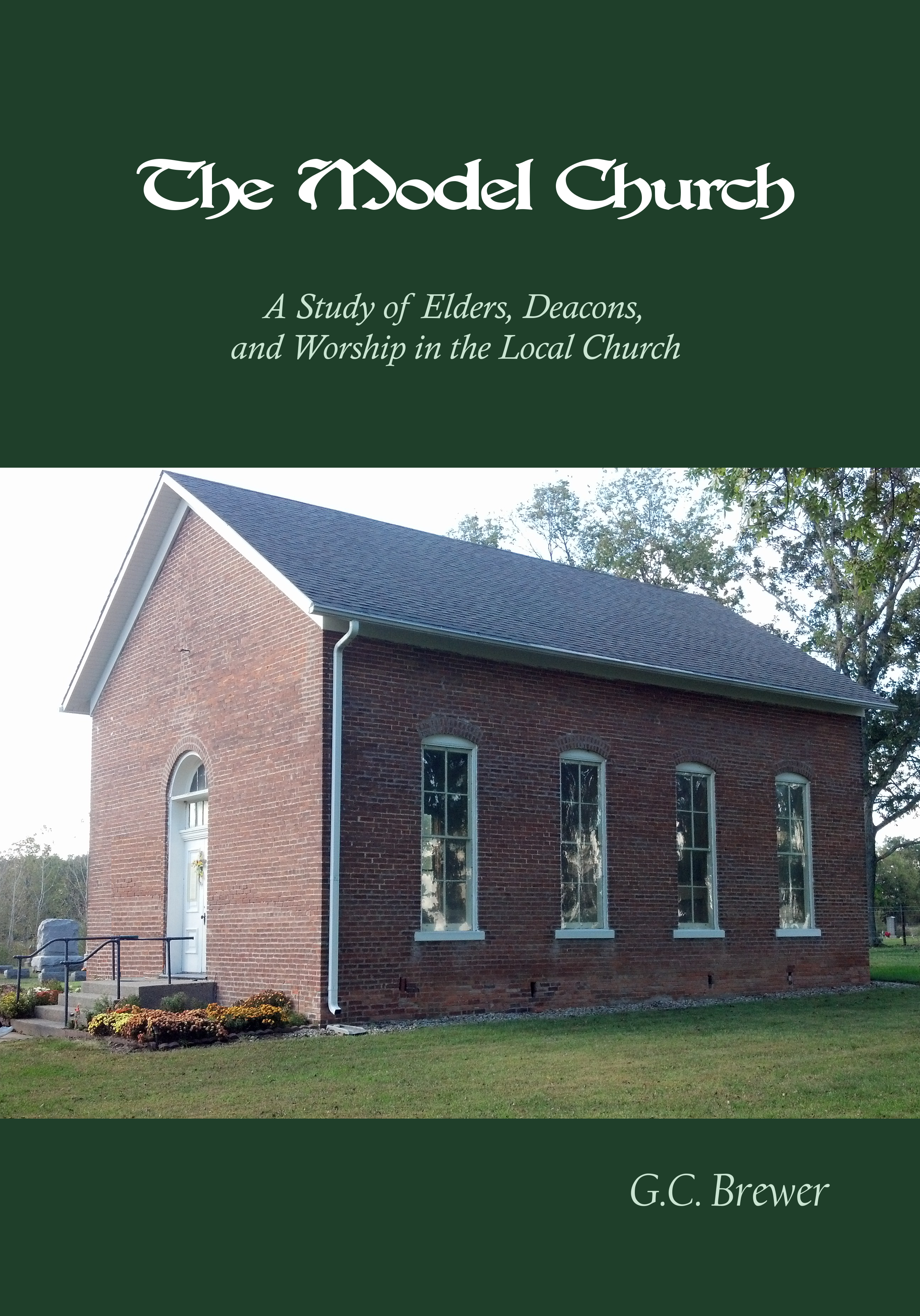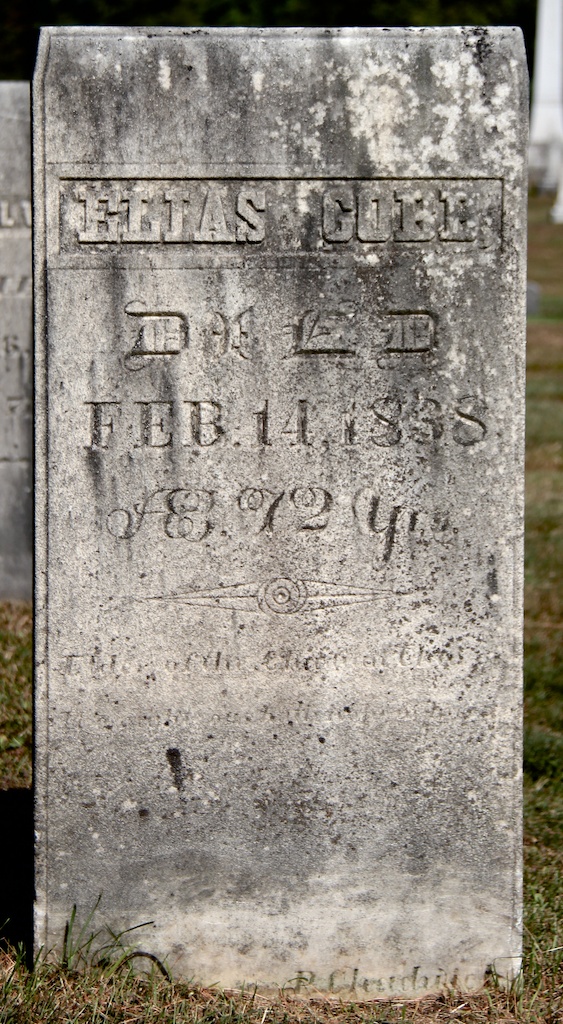Introduction
Easily one of the most confusing passages in the New Testament regarding the role of women in worship is found in 1 Corinthians 11. Some people avoid it like the plague. Others, however, flock to it to try to make it prove their side of the argument. The funny part about it is that those who go to one extreme (women preachers) will hold this passage up as evidence; while those who are on the other side (women can’t speak, and they also have to have their heads covered) also hold this passage up as evidence. What are we to make of this?
Turn to 1 Corinthians 11, and we will look to see what this passage has to say for us today, as well as how it fits into the question about the role of women in worship.
I Praise You…But (1 Corinthians 11:2-3)
Now I praise you, brethren, that you remember me in all things, and (that you) keep the ordinances as I delivered them to you. But, I desire you to know that the head of ever male is Christ; and the head of the female is the male; and the head of Christ is God.
Ordinances
The word “ordinances” is usually translated “traditions,” and while it usually refers to the traditions of men, Paul uses the word to refer to the things taught by the apostles. But in every case, it describes an act that was done for a religious purpose.
Therefore, brethren, stand fast, and hold the traditions which you have been taught, either by word or by epistle (2 Thessalonians 2:15).
We command you, brethren, in the name of the Lord Jesus Christ, that you withdraw yourselves from every brother that walks disorderly, and not after the traditions which he received from us (2 Thessalonians 3:6).
Though it probably didn’t need to be said, we’ll say it anyway: Paul is speaking to Christians in 1 Corinthians 11, describing the things which he taught them to observe in religious service to God. So, the context that we are looking at has to do with obeying that which is taught by God through the apostles in religious service to God. This is why it is pretty much universally agreed that the context here has something to do with worship assemblies.
But…
Even though the Christians in Corinth (for the most part) were keeping the ordinances, there were some things that they didn’t understand. The biggest problem with the Corinthian Christians was not lack of knowledge about the actions they were supposed to engage in, but the attitude behind it (see their treatment of the Lord’s Supper, and their desire to brag because of certain spiritual gifts).
The head of every man is Christ
Paul here immediately puts all the men (literally, males) in their place by saying that it is not up to them on how things are to be done in worship to God. All Christian males are under the authority of Jesus Christ, and must answer to Him. Just because a man may lead in an aspect of worship does not mean that he has the authority to change God’s divine pattern.
Paul is appealing to a higher authority than man—He is appealing to Jesus Christ.
The head of the woman is the man
One person told me that this is a universal law to be applied everywhere. The conclusion to that doctrine is that, men, the most depraved man in the penitentiary is the head of your wife and daughters. Not only does that violate the context, it also violates common sense.
It has been argued that this phrase should be translated “the head of the wife is the husband.” And while that expresses a truth, it doesn’t fit the context. And in addition to that, the same word “man” (Greek aner) is used twice in this verse. If we are supposed to translate it as “husband” in one part, by what logic does the exact same word get translated differently in the exact same verse? Look at the verse. If we insert “husband,” then we would have to make the verse say, “The head of every husband is Christ…” which means that Christ isn’t the head of unmarried Christian men. This cannot be the right interpretation, either. And if we make this say “wife,” then we are forced into the conclusion that nothing in verses 3-16 applies to an unmarried woman or a widow—and by extension, that there is nothing in this passage that speaks to an unmarried man or a widower.
Remember the context in which this is spoken: in keeping the “ordinances” (religious directions) that had been delivered to them. Thus, this is in the context of the church, when the religious directions were being observed. In other words, this is during the worship assembly. The Christian woman, in the worship assembly of the church, is to be in submission to the Christian males who are leading (1 Corinthians 14:34, 1 Timothy 2:11-12).
The head of Christ is God
Just in case there were those in Corinth who wanted to question Jesus’ authority to make commands regarding the worship of His people, Paul informs them that the authority which comes from Christ originates with the Father. In other words, these points are not up for debate or discussion—they come from the ultimate Judge and Lawgiver, God.
Praying and Prophesying (1 Corinthians 11:4-5)
Most sermons and studies on this passage focus on the head “covering,” and often the writers and speakers gloss over (or completely ignore, in some cases) the idea of “praying and prophesying.” But it must be addressed, for this is one of the passages that those who wish to promote women preachers cling to. Are they right in saying this passage authorizes women to lead in public worship?
Every man praying or prophesying with his head covered dishonors his head.
Literally, Paul says “having down (from) head,” but it is not specified whether it is his hair or if it is a veil. The purpose, though, for Paul mentioning this is that if he has his head covered (in whichever way it may be) in worship, it is a sign that he has a different spiritual head (authority) than Christ.
I believe there is enough evidence to conclude that the head covering was something cultural for the Christians in Corinth, and since the focus of this lesson is not on the head-covering, but on the “praying and prophesying” aspect, we aren’t going to dwell a lot on the covering in this lesson.
The word “praying” is the general word for such, and is the same word found in 1 Timothy 2:8—”I desire that males pray everywhere…”
The word “prophesying” is the same one used in chapter 14, and is a reference to miraculous speaking for God, or speaking words from God.
But every woman that prays or prophesies with her head uncovered dishonors her head: for that is even all one as if she were shaved.
Before we get into this, it needs to be said up-front that the exact same words are used for “prays” and “prophesies” in this verse as in the last verse. In fact, this verse should be translated, “But every woman, praying or prophesying…” So there’s nothing in these words themselves that make a distinction between the male and female.
But note that Paul tells the Christian women in Corinth that they are required to have their head covered so that they do not dishonor her head (the man/men leading in the worship). This is a symbol of submission, of being under the authority of someone else. I used to think this was talking about husbands and wives, and that a wedding ring was the same kind of thing, but I do not believe the context supports that conclusion.
So, how exactly is the Christian woman to engage in “praying and prophesying” while yet being in submission to the one leading in worship? Let’s make some specific points very clear:
- The Bible does not contradict itself, for it is inspired by God.
- If an interpretation of a difficult passage of Scripture clearly violates the teaching found in an easy-to-understand passage of Scripture (in the same covenant), then that interpretation is false.
- This is even more clearly true when it is the same writer dealing with the same issue—and even more abundantly true when it is written to the same people…in the same letter.
There are those who point to this passage and say “women have the right to pray and preach in the public worship assembly, based on Paul’s words here.”
How does that match up with those three points we mentioned just a second ago?
- The Bible does not contradict itself—so if this passage teaches that women can lead in prayer and preaching in the worship assembly of the church, then we shouldn’t find anywhere in the New Testament that says otherwise.
- The Bible teaches plainly that it is only male Christians who are to lead in prayer in the church (1 Timothy 2:8); and that Christian women are not permitted to teach (this would include preaching) or to exercise authority over a Christian men in the church (1 Timothy 2:11-12, 3:15). Therefore, the interpretation that “women have the right to pray and preach in the public worship assembly” is false, because both points are contradicted in easy-to-understand passages of the same covenant.
- That passage (1 Timothy 2:8-12) is written by the same author, making it even clearer. But let’s make it abundantly clear by looking at not only the same author, but the same letter! 1 Corinthians 14:34, in the context of speaking miraculously (prayer and prophesying are both mentioned in this chapter), says: “Let your women keep silence in the churches, for it is not permitted to them to speak; but to be under obedience, as also says the law.”
Therefore, if our passage (1 Corinthians 11:5) permits women to pray and prophesy in the worship assembly, then the Bible contains contradictions and cannot be trusted.
But suppose you don’t want to go that far; then how about this: If this passage permits women to pray and prophesy in the worship assembly, then Paul was wrong (thus, uninspired) when he wrote 1 Timothy, as well as just a few chapters later in 1 Corinthians 14; thereby throwing everything Paul wrote into question and leaving us with the impossible task of determining which letters are inspired and which parts are not.
But suppose you aren’t willing to even go that far (though those are the required conclusions to this doctrine). If this passage permits women to pray and prophesy in the worship assembly, then you can’t even know which parts of even this one letter are inspired—especially when Paul himself said that the command for women to keep silent was “the commandment of the Lord” (1 Corinthians 14:37).
To take that interpretation of the passage destroys the entire credibility of the Bible. But let’s, for a moment, pretend that such an interpretation is accurate. Pretend for a moment that it isn’t a contradiction of other Bible passages. Look at the verse again and see what would be required for the women to lead in prayer or to prophesy (preach) in the worship assembly.
Every woman, praying and prophesying with her head uncovered, dishonors her (spiritual) head: for that is even all one as if she were shaved.
If we pretended that their interpretation is correct, then the text requires that the woman only does it when her head is covered, showing her submission to the Christian men who are leading in the “ordinances” … or else she is supposed to be shaved bald (a symbol of shame). No one who argues for women to be able to preach and lead prayer in the assembly would ever suggest that she is supposed to show a sign of submission to the Christian men leading in the worship—How dare you even suggest such a thing! You note the hypocrisy there, I hope, that they want to take half of the verse and shove the other half as far away as possible.
I would love to see someone try to explain how one can be in submission to someone during the teaching, yet still be the authoritative teacher over that person. It cannot be done!
So what does this verse mean/permit?
There are some different interpretations regarding these two verses that attempt to reconcile Paul’s wording (praying and prophesying) with the specific commands regarding Christian women keeping silence in the church (in regards to leading in worship).
The first interpretation is that Paul is speaking about women praying and prophesying, but not in a mixed assembly, that is, in a women’s-only gathering (ladies’ day, ladies’ class). Some might claim there is no historical precedent for these kind of assemblies, but turn your attention to Exodus 15:20-21:
And Miriam the prophetess, the sister of Aaron, took a timbrel in her hand; and all the women went out after her with timbrels and dances. And Miriam answered them, “Sing out to the LORD, for He has triumphed gloriously! The horse and his rider has He thrown into the sea!”
There, the prophetess went with the women only and spoke with them, leading them in worship to God. That was around 1500 years prior to Paul’s letter to the Corinthians, so there is indeed historical precedent for a women-only assembly worshiping God.
The problem with this interpretation of 1 Corinthians 11 is that the context shows the men and women together (“the head of the woman is the man,” verse 3). And what is the purpose of describing submission to the male Christians leading in worship if Paul’s describing a setting where no male Christians are present?
The second interpretation is that Paul is using the phrase “praying and prophesying” as a way to describe the worship service. In other words, that all Paul is saying is, “But a woman, participating in the worship service…” Most authors agree that “praying and prophesying” isn’t an exhaustive list, but includes everything that is done in the worship assembly—otherwise, you’d have the strange requirement that women in Corinth cover their heads only during certain parts of the worship (praying and proclaiming), but not others (like singing and the Lord’s Supper).
The idea, then, would be that Paul isn’t saying that the women lead in prayer or in prophesying (which would violate other passages), but that they participate in the worship by listening and assenting to the prayer and actively paying attention to the proclamation of God’s message.
David Lipscomb made a good point, which goes along with this idea (this is my paraphrase): Man cannot come to God without submitting to the authority of Jesus Christ (John 14:15). In the same way, The Christian woman during the assembly cannot offer acceptable worship without submitting to the authority of the male Christians leading the worship.
Obviously, if there are no men present, then that no longer applies.
There may be other interpretations of which I am not aware, but this second one, I believe, is rational, logical, and in perfect agreement with what is said on the topic elsewhere in Scriptures.
Conclusion
This is somewhat reminiscent of the issue of “baptism for the dead,” in that once we know what it can’t be (by process of elimination, Bible-style), we are left with what it must be.
God’s word does not contradict itself. God does not permit something in one part of the New Testament, only to forbid it in another. That would make God a liar—something which is impossible. Instead, we must take the totality of what Scripture says, and interpret in a way that harmonizes all of the passages dealing with any given subject.
There is nothing more important to which this applies than in salvation. We have all messed up in our lives. We’ve ignored the commands of God, we’ve sinned, and as a result, we’ve aligned ourselves against Him and joined with His enemy, Satan. Satan, however, isn’t as powerful as he lets on. In fact, he’s already lost the war, even though he’s still trying to take down as many people as possible in the process—like a kamikaze. My job, and the job of Christians everywhere, is to invite people to join the winning side, to avoid the destruction that will come as a result of being God’s enemy. We are to tell them about Jesus Christ and Him crucified, so that they might have faith (Romans 10:17). But though there are verses that talk about believing as a prerequisite to salvation, there are other passages as well—passages that do not in any way contradict the ones about belief—that show belief is just the first step in a proper response to the gospel.
One must also make the decision to change sides, to join Jesus Christ. The person who makes that decision must state his belief in the Lord, and be immersed, baptized, by the authority of Jesus. When that is done, the person has become a Christian. Then comes the command to grow, to “study to show thyself approved to God,” to “walk in the light.” We want to help you be right with Jesus Christ. If we can help you, please let us know as we stand and sing.
-Bradley S. Cobb


